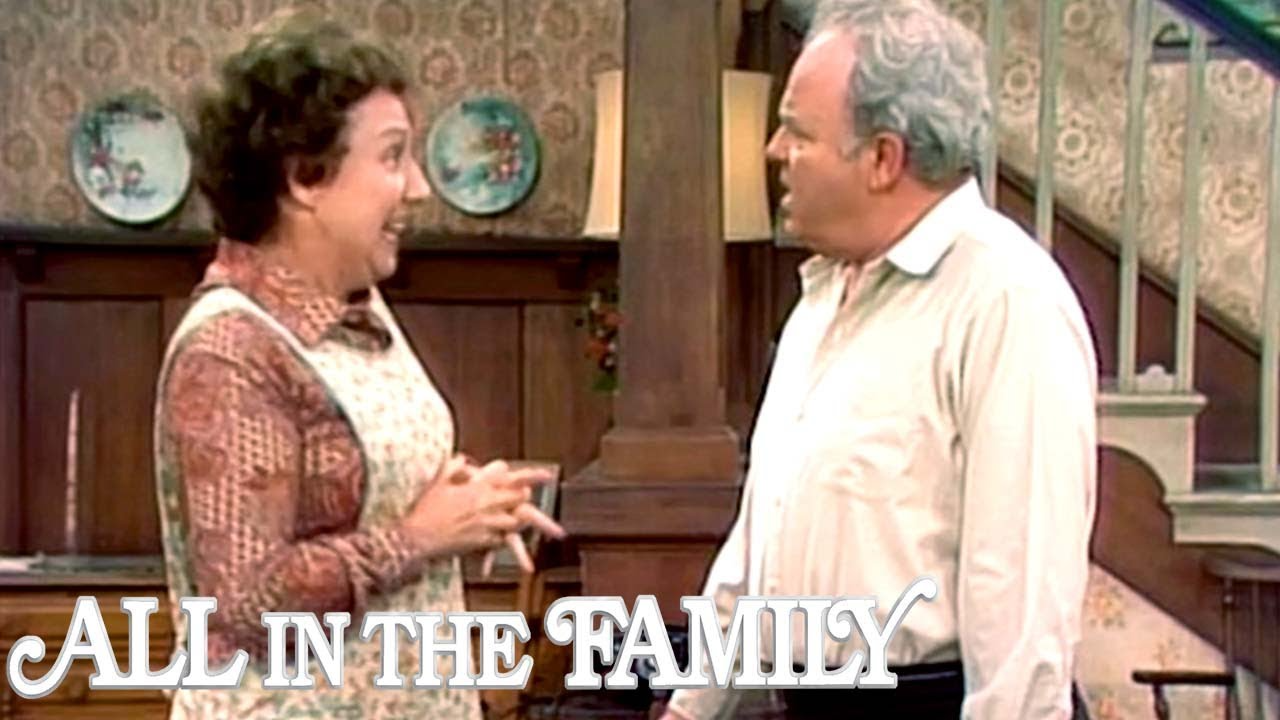
Introduction:
Though All in the Family first aired more than 50 years ago, its themes continue to resonate with contemporary audiences. In an era of political polarization, social upheaval, and cultural shifts, the issues explored by the show—racism, sexism, generational conflict, and more—are still deeply relevant. The show’s fearless engagement with these topics, wrapped in the form of sharp humor and biting satire, makes it as important today as it was when it first aired. The societal struggles Archie Bunker and his family navigated in the 1970s continue to mirror the challenges we face in modern America, showing that some issues, unfortunately, never go out of style.
Relevance of Its Themes:
At its core, All in the Family was a show that engaged directly with the social and political issues of its time. From the Vietnam War to the Civil Rights Movement, the show didn’t shy away from addressing the hottest issues on the national agenda. The conflicts between Archie Bunker’s outdated views and his more liberal daughter and son-in-law highlighted the deepening divide between generations. Today, those same conflicts seem eerily familiar. The debates over race, gender, and politics continue to dominate the national discourse, with the same issues of conservatism vs. progressivism that All in the Family addressed still at the forefront of American society.
The show’s approach to race, in particular, remains pertinent. While the characters in the show often struggled with bigotry and prejudice, the show ultimately allowed for moments of growth and learning. This willingness to confront difficult conversations—albeit with humor—was groundbreaking in an era when race was rarely discussed openly on television. In a time when America is still grappling with issues of systemic racism and inequality, All in the Family feels just as necessary today as it did when it first aired.
Humor That Addresses Serious Issues:
What set All in the Family apart from other sitcoms was its ability to tackle serious, often taboo subjects with humor. The show didn’t just discuss issues—it made them the centerpiece of its storytelling. By using comedy to deal with race, class, and gender, the show opened the door for later sitcoms to do the same. Shows like The Simpsons, Roseanne, and The Office have followed in All in the Family’s footsteps by mixing comedy with social commentary, but none have done it with the same level of unapologetic fearlessness.
The show’s humor was often edgy and controversial, but that was part of its genius. It made viewers laugh while simultaneously forcing them to confront uncomfortable truths about society. Today, humor is still one of the most powerful tools for addressing social issues, and All in the Family demonstrated just how effective it can be in getting people to talk about issues they might otherwise avoid.
A Legacy of Social Change:
The cultural significance of All in the Family can’t be overstated. Not only did it reshape the sitcom format, but it also contributed to the broader cultural conversation about social change. The series was instrumental in breaking down the taboos surrounding race and gender on television, setting the stage for a new wave of programming that was more reflective of America’s diverse society. Shows that came after All in the Family—like Maude, The Jeffersons, and Good Times—were able to tackle similar issues with the groundwork laid by Norman Lear’s masterpiece.
What’s most striking about All in the Family’s legacy is how timeless its messages are. The generational divides that were so prominent in the 1970s are still present today. The show’s treatment of race, gender, and class struggles remains incredibly relevant. Archie Bunker may have been a product of his time, but his views—however outdated—are still present in some parts of American society. This is why All in the Family is still so vital to the conversation about the state of our nation and its ongoing struggle for equality.
Conclusion:
The groundbreaking nature of All in the Family ensured that its impact would be felt long after its final episode aired in 1979. The issues it raised, the characters it portrayed, and the way it blended humor with social commentary still resonate in our current era. In a world that is still grappling with the same issues of race, gender, and class that All in the Family explored, the show’s legacy remains powerful and enduring. The struggles of Archie Bunker and his family may have been set in the 1970s, but the challenges they faced—and continue to face—are timeless. All in the Family proves that the more things change, the more they stay the same.
